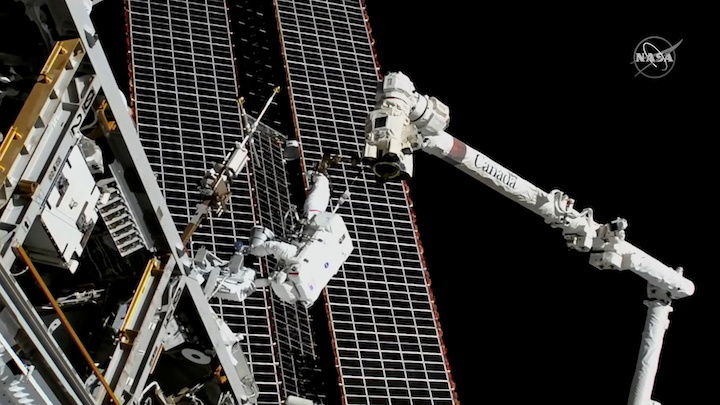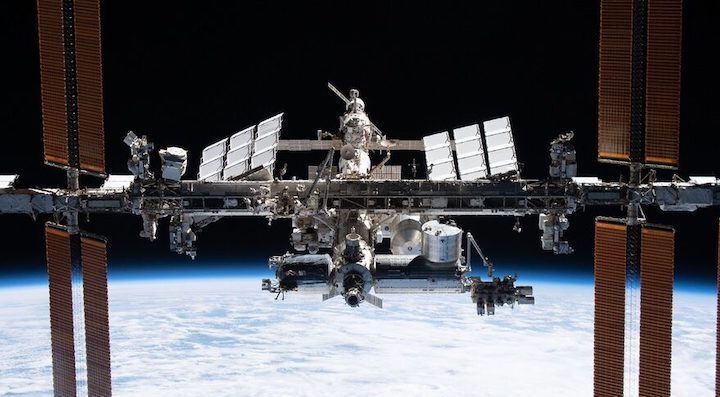2.01.2022
If approved by international partners, and funded by Congress, the station would operate through 2030

While the act was condemned by the Biden administration, and NASA Administrator Bill Nelson called it “reckless and dangerous,” Nelson also said the attack was an act of the Russian military that surprised the Russian space agency.
“They’re probably just as appalled as we are,” Nelson said in an interview with The Washington Post at the time.
Despite those tensions, the White House and NASA want to keep its alliance with its international partners — and particularly Russia — going on the space station, a relationship that has traditionally been walled off from geopolitical turmoil on Earth.
Earlier this year, Dmitry Rogozin, the head of the Russian space agency, told CNN that it was committed to the station. “This is a family, where a divorce within a station is not possible,” he said.
In a statement to The Post on Friday, Nelson said the station had become a long-standing tool of diplomacy as well as science that needed to be continued. In addition to Russia, Japan, Canada and Europe are partners in the station in what NASA has called “the most politically complex space exploration program ever undertaken.”
“The International Space Station is a beacon of peaceful international scientific collaboration and for more than 20 years has returned enormous scientific, educational and technological developments to benefit humanity,” Nelson said.
The White House’s support for the ISS extension comes as China is assembling its own space station in Earth’s orbit. Nelson has called China a “very aggressive competitor.” He recently warned: “Watch the Chinese.”
In the statement Friday, he said that: “As more and more nations are active in space, it’s more important than ever that the United States continues to lead the world in growing international alliances and modeling rules and norms for the peaceful and responsible use of space.”
Currently, Congress has approved funding the station through 2024 and is expected to approve additional funds through 2030.
Despite the support to keep the station going, it’s not clear that the station itself will last that long. It has sprung leaks and been taken on a couple of wild rides due to errant thruster firings.
NASA is looking to the private sector to replace the station. In October, it awarded three contracts worth a total of $415.6 million to develop commercial space habitats.
The companies, Jeff Bezos’s Blue Origin, Nanoracks and Northrop Grumman, all have said that their stations would be ready by the end of the decade. (Bezos owns The Washington Post.) If they’re not, however, NASA could lose the foothold it has held in low Earth orbit for more than 20 years.
Quelle: The Washington Post
+++
White House commits to ISS extension

WASHINGTON — The Biden administration formally supports extending operations of the International Space Station through the end of the decade, an announcement that is neither surprising nor addresses how to get all the station’s partners, notably Russia, to agree on the station’s future.
In a statement published on NASA’s ISS blog Dec. 31, NASA said the White House agreed to extend operations of the ISS through 2030. Federal law, last revised in 2015 with the enactment of the Commercial Space Launch Competitiveness Act, made it U.S. policy to operate the station through at least 2024.
“I’m pleased that the Biden-Harris Administration has committed to continuing station operations through 2030,” NASA Administrator Bill Nelson said in the statement. “The United States’ continued participation on the ISS will enhance innovation and competitiveness, as well as advance the research and technology necessary to send the first woman and first person of color to the moon under NASA’s Artemis program and pave the way for sending the first humans to Mars.”
While the form and the timing of the announcement — a blog post rather than a formal press release, issued on New Year’s Eve — was a surprise, the decision to extend the life of the ISS was not. NASA had made clear its long-term plan for the station was to operate it through the end of the decade, providing enough time for commercial stations to enter service in the late 2020s and enable a smooth transition from the ISS to those commercial facilities.
There have been several efforts in the last few years to formally extend the authorization of ISS operations in federal law from 2024 to 2028 or 2030. That included an effort led by Nelson in his final days in the Senate in 2018 to pass a commercial space policy bill with that extension. That bill won approval in the Senate by unanimous consent in December 2018 but failed to get the two-third majority needed to pass the House via a legislative procedure known as suspension of the rules.
The White House’s decision is alone not sufficient to continue ISS operations through the end of the decade. NASA said it would work with the station’s partners — Canada, Europe, Japan and Russia — “to enable continuation of the groundbreaking research being conducted in this unique orbiting laboratory through the rest of this decade.”
One partner has already signaled its willingness to continue the ISS. “I welcome this announcement & will submit a proposal to Member States for @esa to continue until 2030, as well,” tweeted Josef Aschbacher, director general of the European Space Agency, shortly after NASA published its statement.
A bigger challenge, though, will be keeping Russia in the ISS partnership. Russian officials have expressed doubts about both the technical ability of the ISS to operate through the end of the decade given problems with the Russian segment of the station as well as a desire to develop a Russian national space station.
“The current agreement is that we’ll keep operating it until 2024. It can, of course, keep flying after 2024, but every next year will come at greater difficulty,” Dmitry Rogozin, head of Roscosmos, said during a press conference at the International Astronautical Congress in Dubai Oct. 25. That difficulty, he said, was in the form of increasing technical failures and malfunctions.
Geopolitics will also be a factor in Russia’s future participation in the ISS, particularly given fears in recent weeks that Russia will attempt to invade Ukraine. The station’s operations were not affected by sanctions from Russia’s annexation of Crimea and incursion into eastern Ukraine in 2014, but after a Dec. 7 call between President Joe Biden and Russian President Vladimir Putin, U.S. officials said that “things we did not do in 2014 we are prepared to do now.”
Biden and Putin talked again Dec. 30. In a readout of that call, the Kremlin stated that Putin told Biden that any new sanctions against Russia would be a “grave error” and risks “a complete breakdown in Russia-U.S. relations.”
Quelle: SN

